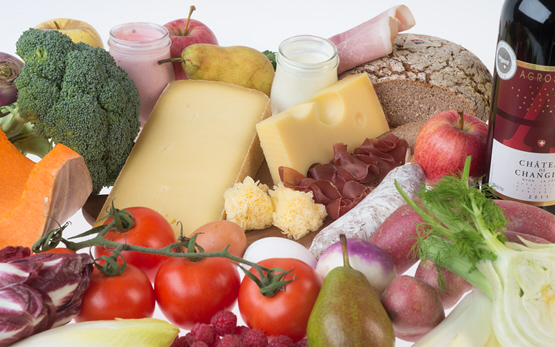Agroscope played a leading role in developing a digital tool for optimising food recipes. The tool facilitates the development of high-quality, nutritious and environmentally friendly foods. The new platform supports the sustainable transformation of the food sector.
Creating a new food product that meets consumer and legal requirements can take up to two years and cost millions of euro. The aim of the EU-funded OptiSignFood project was therefore to speed up and optimise this process while reducing costs. For this, experts under the leadership of Agroscope brought together science, industry and cutting-edge technology.
At the launch of the project in 2021 the international team had in mind a software solution that would develop and optimise new recipes using artificial intelligence (AI). The project concluded recently, and software is now available; the newly developed platform takes account of important variables such as nutritional value, effect on the environment and health, food quality, and safety parameters.
Prediction and optimisation of new recipes
But what is the new software based on? First off, the experts created and expanded a database in which nutritional information was linked with data concerning the effects on the environment. i.e. CO2 footprint, water shortages or land use. Agroscope provided environmental and nutritional information as well as indicators on diet and health for the platform. Three partners from the private sector developed the software and model, used AI tools, and validated the results as well as tested the software in practice.
Using AI and machine learning, the software can quickly identify optimal combinations, thereby avoiding expensive and often fruitless testing rounds for product development.
Aimed at food manufacturers in specific sectors, e.g. for plant-based dairy alternatives as well as various snacks and convenience products, the software is now being marketed by The Makers Food Gmbh.






